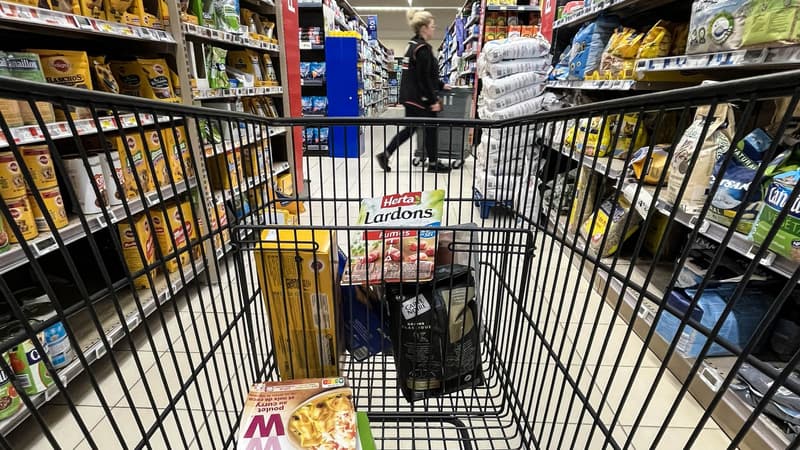The issue led to a skirmish between the executive and representatives of La France Insoumise last week. During his televised speech, Emmanuel Macron assured that price blocks do not work because “prices are no longer managed in our country.” Mathilde Panot then accused him of lying, alleging that “the commercial code allows the Prime Minister to block prices by simple decree.” Before Manuel Bompard advocates this measure on the BFMTV set: “If we finally want to give a concrete answer to the questions of purchasing power, we need price blocking measures.”
As Frédéric Bizard, professor at the ESCP, explains, the 1945 ordinance that allowed prices to be managed ceased to exist in 1986. “This is free competition that acts outside the sectors in which we have maintained price management such as price of a book, the price of a medicine, the price of a taxi,” he says.
An inflation that has already been seen and that is not specific to France
On the other hand, there is a provision in the Commercial Code that allows prices to be blocked “but temporarily, that is to say for a maximum period of six months and in certain exceptional circumstances, in particular a crisis”, recalls Aurélie Dellac. However, the current inflation does not necessarily constitute an exceptional circumstance, according to the economic lawyer: “Double-digit inflation responds to macroeconomic considerations. It is not the first time that this has happened in France, so we can consider that it is not a matter of an exceptional circumstance.”
An opinion that is also shared by the economist Mathieu Plane, deputy director of the forecasting and analysis department of the OFCE.
For his part, Frédéric Bizard recalls the general nature of the price increase. “If it really focused on a basket of goods, on a sector itself, we would enter a case where an intervention could be effective,” he adds. […] Under the current legal conditions, we cannot block prices: the order would probably be revoked by the State Council.”
Risks of shortages, drop in quality and poor guidance
However, the ESCP professor believes that the State could still intervene and cites as an example the anti-inflationary basket that the Minister of Commerce Olivia Grégoire had proposed defining a few months ago: “The idea was not not to regulate the products but to regulate a basket of estate.”
Rather than an economic context that does not lend itself to this, Frédéric Bizard insists on the negative side effects of price blocking. “In the short term, freezing prices has a really positive impact on purchasing power because from the moment the prices of essential products are blocked, those who have limited purchasing power find themselves in a worse and more favorable situation. to consume these prices,” he stated. concede.
But freezing prices can lead to inventory shortages. “People think it won’t last and we quickly find ourselves in a shortage situation,” he explains. Shortages may also be favored by a drop in production resulting from the price limit, the latter being “a very strong incentive to produce in a market economy.” Producers may also reduce the quality of the product or service delivered. “On a social level, it is rather those with high incomes who benefit because they consume more than those with low incomes, concludes the expert. […] And then it puts the State in debt because it develops a black market, barter. “What weakens the State weakens public services and therefore the middle class.”
Source: BFM TV


